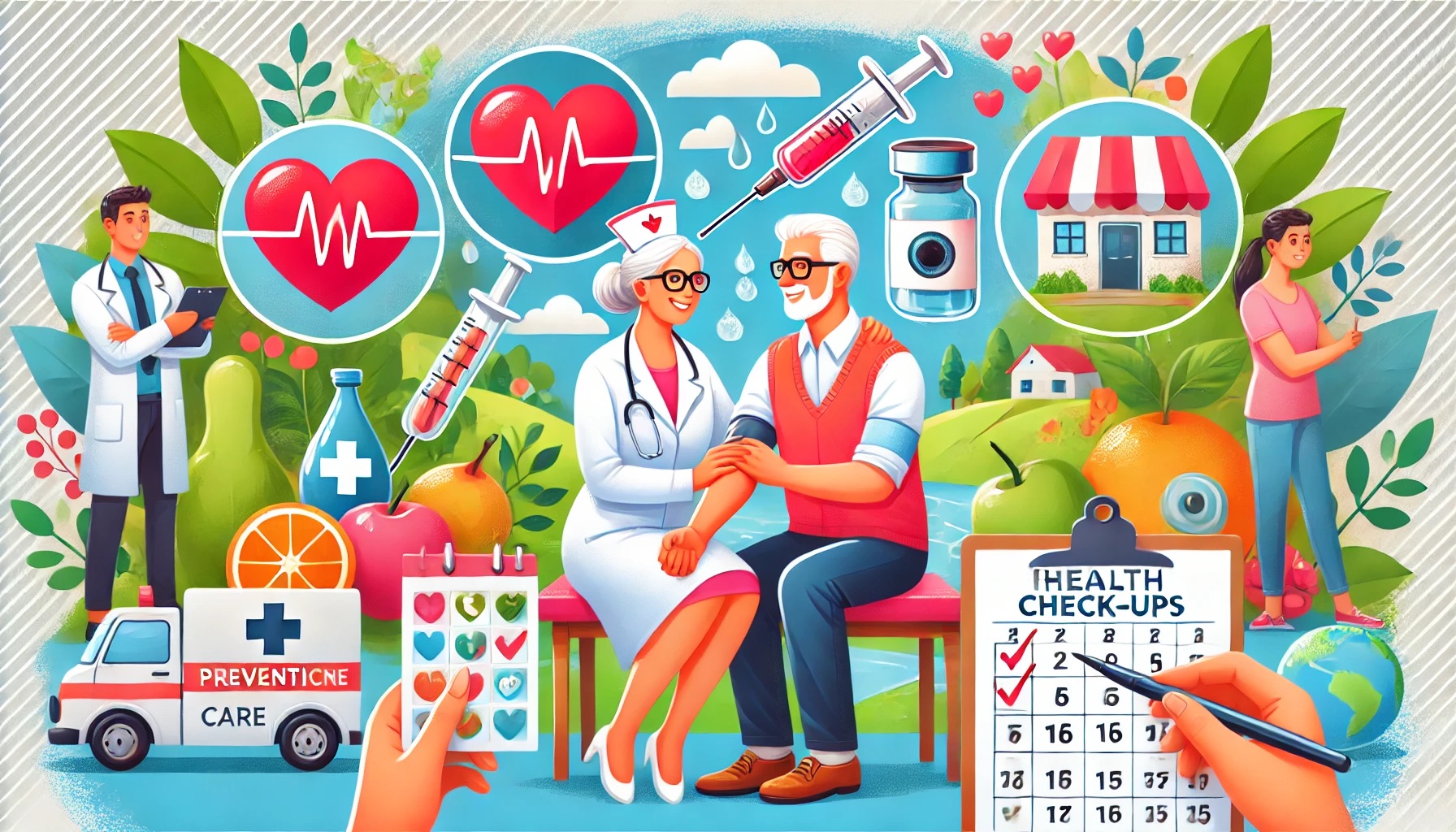Our healthcare needs evolve as we age, requiring a proactive approach to maintain optimal health and well-being. Preventive care becomes exceptionally crucial for seniors, helping to detect and manage potential health issues before they become serious. Regular screenings and vaccinations are vital components of this approach, offering protection against diseases and ensuring early detection of more common conditions in older adults. Here’s a comprehensive guide to essential tests and vaccines for seniors.
Importance of Preventive Care for Seniors
Preventive care is about taking proactive steps to maintain health and prevent disease. For seniors, this involves regular check-ups, screenings, and immunizations that can significantly improve quality of life and longevity. By identifying health issues early, seniors can receive timely treatment, manage chronic conditions effectively, and avoid complications.
Essential Health Screenings
1. Blood Pressure Screening
High blood pressure, or hypertension, is a common issue among seniors and can lead to serious health problems like heart disease and stroke. Regular blood pressure checks can help monitor levels and ensure any necessary lifestyle changes or medications are implemented promptly.
2. Cholesterol Check
High cholesterol levels increase the risk of heart disease. Seniors should have their cholesterol checked at least every five years, or more frequently if they have a history of heart problems or other risk factors.
3. Diabetes Screening
Type 2 diabetes is prevalent among older adults. Blood tests such as fasting blood sugar or HbA1c can help detect diabetes early, allowing for better management through diet, exercise, and medication.
4. Bone Density Test
Osteoporosis, a condition characterized by weak and brittle bones, is a significant concern for seniors, particularly postmenopausal women. A bone density test can help assess bone health and the risk of fractures, leading to interventions like calcium and vitamin D supplements or medications.
5. Cancer Screenings
- Colorectal Cancer: Colonoscopy is recommended every 10 years for those over 50 or more frequently if there are risk factors.
- Breast Cancer: Mammograms are recommended every 1-2 years for women aged 50-74.
- Prostate Cancer: Men should discuss the need for prostate-specific antigen (PSA) testing with their healthcare provider, considering their risk factors.
- Skin Cancer: Regular skin checks can help detect early signs of skin cancer.
6. Vision and Hearing Tests
Regular eye exams can detect conditions like glaucoma, cataracts, and macular degeneration, which are common in seniors. Hearing tests are also important as hearing loss can affect communication and quality of life.
7. Cognitive and Mental Health Screenings
Screening for cognitive impairments, such as dementia, and mental health issues, like depression, is crucial. Early detection allows for better management and support.
Essential Vaccinations
1. Influenza (Flu) Vaccine
The flu can be particularly severe for seniors. An annual flu shot is essential to reduce the risk of flu-related complications.
2. Pneumococcal Vaccines
Pneumonia poses a significant threat to older adults. Two vaccines, PCV13 and PPSV23, help protect against pneumococcal disease, which can lead to pneumonia, meningitis, and bloodstream infections.
3. Shingles Vaccine
Shingles, caused by the reactivation of the chickenpox virus, can be extremely painful and lead to long-term complications. The shingles vaccine is recommended for adults over 50 to reduce the risk of this condition.
4. Tdap/Td Vaccine
The Tdap vaccine protects against tetanus, diphtheria, and pertussis (whooping cough). Seniors should receive a booster shot every 10 years to maintain immunity.
5. COVID-19 Vaccine
Given the ongoing pandemic, COVID-19 vaccination is crucial for seniors at higher risk of severe illness. Keeping up with the latest booster recommendations is vital for continued protection.
Preventive care for seniors is a cornerstone of healthy aging. Regular health screenings and vaccinations are vital in detecting potential health issues early and protecting against infectious diseases. By staying proactive about their health, seniors can enjoy a higher quality of life and greater independence.
Dr. Barbara R. Edwards practices at Penn Medicine Princeton Health in the Princeton Medical Center and is the Academic Director for their Ambulatory Residency Program.


